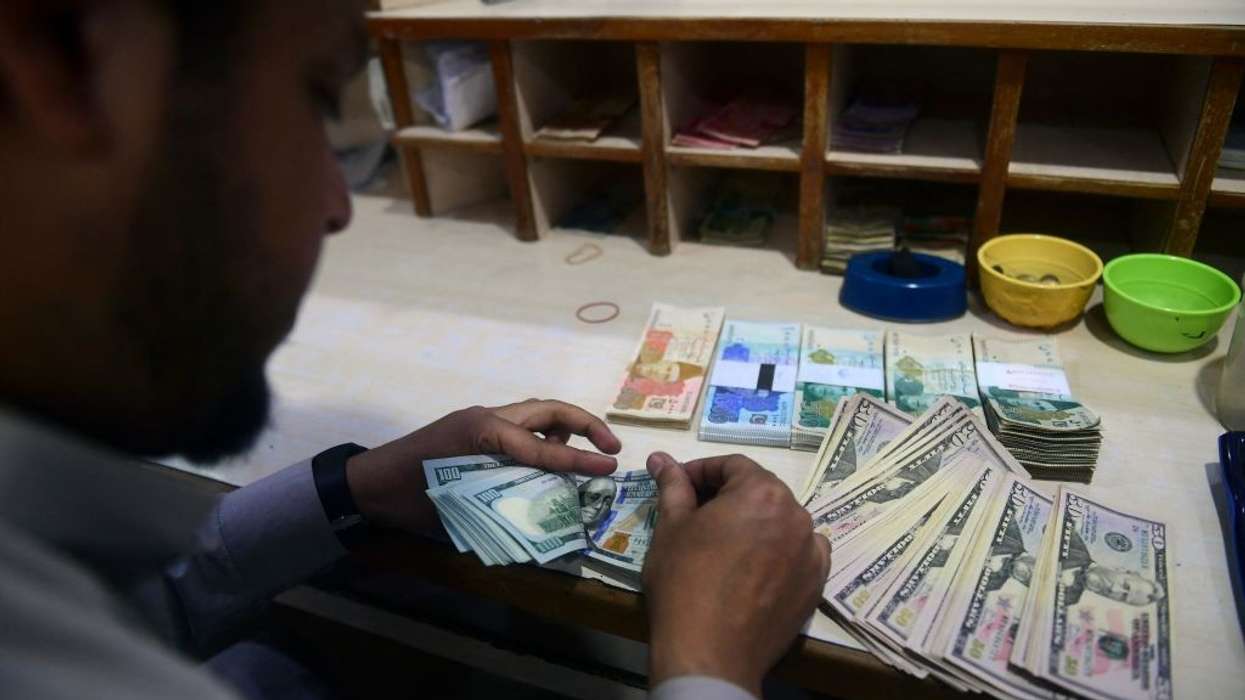The Pakistani rupee's decline slowed on Friday after its value plunged over the previous two days, with hopes raised by an International Monetary Fund team visiting Islamabad next week to discuss unlocking a suspended bail-out package.
Left with only $3.68bn in foreign exchange reserves, Pakistan barely has enough to cover three weeks of imports, and desperately needs the IMF to release the next $1bn tranche of its bail-out programme to head off a potential default.
The IMF said on Thursday that its delegation would visit Pakistan from Jan. 31 to Feb.9, filling Prime Minister Shehbaz Sharif with optimism that the disbursements would start flowing again.
"An agreement with the IMF, God willing, will be done... We will soon be out of difficult times," Sharif said at an event in Islamabad.
A $6bn IMF package was agreed in 2019, and topped up to $7bn after last year's devastating floods, but disbursements were suspended in November due to the government's failure to do more to reduce its fiscal deficit.
The IMF wants the government to commit to more substantial fiscal measures, and once it decides to resume lending, other multilateral and bilateral lenders are expected to offer more funding to the politically unstable, nuclear-armed South Asian nation.
Former finance minister Miftah Ismail told Geo TV that the unlocked funding from the IMF would help head off the risk of Pakistan defaulting on its external obligations.
Worryingly for Pakistan's 220 million people, this week's plunge in the rupee's value will add to the hardship they are suffering due to the high prices of imported food and fuel.
On Friday, market trade data showed the rupee had weakened 1.8 per cent to 260 per dollar in the inter-bank market by the afternoon, with the decline slowing after a 9.6 per cent drop on Thursday (26).
The rupee's biggest single day plunge in over two decades came a day after foreign exchange companies removed a cap on the exchange rate traded in the open market, taking Pakistan closer to the market-determined exchange rate regime favoured by the IMF.
On Friday (27), the rupee fell 1.1 per cent on the open market to trade between 263-265 per dollar, said Exchange Currency Association of Pakistan.
The removal of the cap has resulted in the two markets aligning more closely, and exchange companies expected a black market in dollars to eventually dry up.
The Pakistan Stock Exchange's benchmark index weakened 0.31 per cent on Friday, having gained 2 per cent on Thursday in anticipation of encouraging news from the IMF.
(Reuters)





